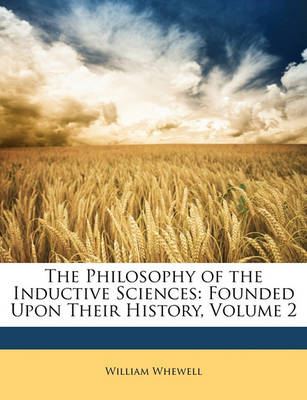Library of Science Classics
1 total work
The philosophy of science as it is known today emerged out of a combination of three traditional concerns: the classification of the sciences, methodology and the philosophy of nature. Included in the series "Works in the Philosophy of Science 1830-1914" are all three of these interrelated areas. The titles should be of interest to both the philosopher of science and to the historian of ideas. The former will be able to trace present-day concerns back to their origins; the latter should find it a useful source for the study of Victorian conceptions of science. A work in which William Whewell draws extensively upon his earlier "History of the Inductive Sciences" (1837) to support his claim that the crucial "consilience of inductions" that is the hallmark of good science always guided by a new "idea". This "Kantian" or "intuitionist" of science provoked John Stuart Mill to develop the opposite viewpoint in his "Logic".
